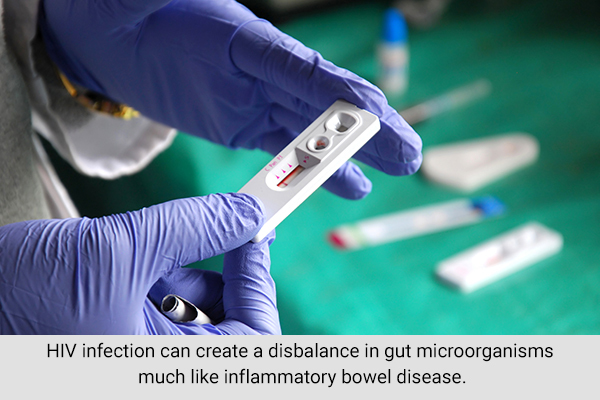In this article:
The intestine is protected by an intestinal barrier that may be affected by various factors such as diseases of the intestine, infection, and alteration in the balance of gut microorganisms.

Changes in this intestinal barrier can lead to a condition known as leaky gut syndrome. This can cause substances within the intestine such as food particles and bacteria to leach into the blood. (1)
The complications that can arise from a leaky gut involve organ disorders as the pathogens travel via the blood to different organs and cause dysfunction. (1)
Risk Factors Associated With a Leaky Gut
These are the factors that can lead to the development of a leaky gut.
1. Autoimmune disorders
Autoimmune disorders refer to diseases in which the immune system attacks the body. Diseases such as type 1 diabetes, multiple sclerosis, inflammatory bowel disease, and systemic lupus erythematosus can all cause a leaky gut. (2)
2. Inflammation-causing conditions
Certain illnesses create a state of inflammation in the body where inflammation-causing substances are released into the blood and trigger an immune response. This inflammation can damage the biodiversity of gut microorganisms and cause a leaky gut. (3)
Inflammatory bowel disease, ulcerative colitis, and Crohn’s disease are all examples of illnesses that can cause an inflammatory response in the body. (4)
In addition, a diet high in fat and sugar that includes processed foods such as cakes, biscuits, pastries, cold cut meats, high-sugar drinks, and packaged fruit juices can also lead to an inflammatory state and increase the risk of a leaky gut. (3)
3. Infections that cause intestinal injury

HIV infection can create a disbalance in gut microorganisms much like inflammatory bowel disease. It is because an HIV infection triggers an autoimmune reaction in the body and the immune cells that respond to the infection affect gut microorganisms negatively. (5)
4. Chemotherapy/radiation
Cancer treatments such as chemotherapy and radiation can affect gut microorganisms by creating an imbalance in their diversity and increasing the permeability of the intestinal lining. This ultimately causes a leaky gut, which is potentially dangerous for cancer patients due to their already lowered immune status. (6)
5. Medications
The long-term and consistent use of medication such as nonsteroidal anti-inflammatory drugs (NSAIDs) can be harmful to the intestines.
NSAIDs can tear down the thin layer of protective cells that act as a lining or barrier. Once this layer is breached, foreign bodies and disease-causing bacteria can leak into the blood and cause further damage to the rest of the body. (7)
6. Food allergies
Food allergies may not directly cause a leaky gut but they can worsen it. Food allergens can escape into the bloodstream, spiking the body’s immune response, which will worsen a leaky gut.
To avoid this complication, it is better to completely eliminate food sources of allergy from the diet. (8)
7. Alcohol consumption

Excessive alcohol consumption can cause damage to the intestinal barrier and change gut biodiversity. Both of these changes can lead to a leaky gut.
Therefore, in addition to its harmful effects on the liver and brain, alcohol can also affect other organs by influencing gut microorganisms and the immune response. (9)
8. Stress
Studies have found that stress, depression, and other mood disorders influence gut microorganisms possibly due to the rise in the levels of cortisol, a hormone that causes stress. (10)
These changes in gut microorganisms can weaken the intestinal barrier and thus cause a leaky gut.
Most-Asked Questions About a Leaky Gut
What food can I eat to improve a leaky gut?

Probiotic-rich foods such as yogurt, kimchi, sauerkraut, kombucha, and tempeh can be very beneficial in restoring the diversity of gut microorganisms. In addition, prebiotic foods such as soluble fiber from oats, rice, and bananas can also help.
Make sure you avoid high-fat and high-sugar foods.
How long does it take to fix a leaky gut?
Upon dietary intervention, it may take up to 3–4 months to restore a healthy gut function.
How do I know my leaky gut is healed?
You may observe an improvement in energy levels, less bloating, improved bowel movement, and healthy-looking skin. At this point, it is a good idea to get a blood test to determine the progress of the condition.
Final Word
A healthy gut plays a more important role in health and overall well-being than we know or give credit for. Gut microorganisms form a protective layer around the inner wall of the intestine to prevent the leaking of substances and foreign bodies such as disease-causing bacteria and pathogens into the blood.
Changes in the body due to illnesses, inflammation, chronic conditions, immune responses, and drugs can change the diversity and number of microorganisms, which can ultimately break down that protective barrier. This creates a gap or leak in the gut, which then releases food particles and bacteria into the blood that freely travel to other organs and cause damage.
It is important to manage a leaky gut to maintain good overall health.
- Was this article helpful?
- YES, THANKS!NOT REALLY


